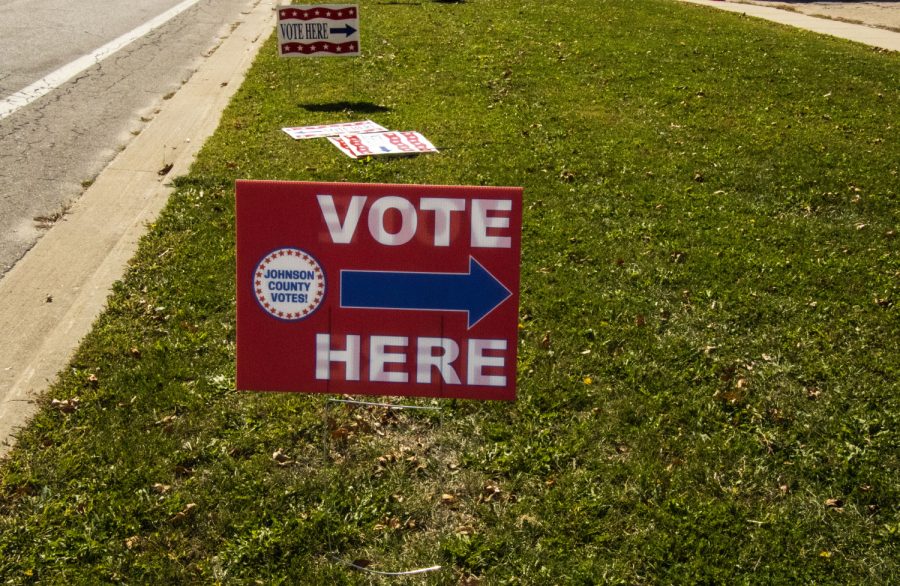Opinion | What next?
After you cast your ballot for this election, you still have a wide array of ways to stay involved in politics.
Johnson County holds drive-in voting at 913 S. Dubuque St. as seen on Tuesday, Oct. 6, 2020
November 3, 2020
There’s been a lot of talk about this election in regard to one specific thing — how much people can’t wait for it to be over and grab brunch. And in all honesty? Totally fair. This election cycle has been abhorrent in every sense of the term. Unfortunately, politics doesn’t stop Nov. 3 — and neither should your engagement.
Over 100 million people sat out the election in 2016, according to the 100 Million Project — nearly a third of the U.S. population. And that’s just casting a ballot. How many more millions of Americans don’t know who their local representative is? How many keep up with city-council meetings?
There’s so much more that’s done politically than casting a vote every two years (or four years, if you’re someone who just votes during Presidential elections).
But the blame doesn’t fall on individual voters — after all, if we want to live in a democracy, then we need to build the infrastructure necessary to teach people how to interact democratically.
Basic high-school government classes teach the most basic of civic engagement — vote in presidential elections and midterms, write to your Congressperson if you have a problem, and watch the news to keep up on whatever is going on at the moment.
Unfortunately, that’s a very narrow view of political engagement. School might be good for many things, but creating citizens with a proper understanding of politics is not one of them.
I cannot speak to all high schools everywhere, but the education I received in AP Government was not nearly substantial enough. Everything I’ve learned about politics – voter registration, how to get reliable information, what to look for in disinformation – has been done independently, on my own time.
And that’s why it’s important to not fall asleep after elections. If all this effort has to be done to learn how to actually be a part of our democracy, then we alienate millions of people who don’t have the time to invest in learning.
This especially includes students. I don’t want to sound preachy, but I know you guys have time on your hands. While we all need to unplug and relax from the stress of living in such a tumultuous time, we also need to get our heads in the game to try and fix things.
The Iowa City Mutual Aid Collective is a group geared toward community outreach and assistance, ensuring that neighbors reach out and help one another in times of distress.
The Campaign to Organize Graduate Students helps to, as the name suggests, organize UI graduate students in a union capacity — ensuring suitable working conditions and wages for TAs, RAs, and others at the university.
The Iowa City Tenants Union is a collection of renters living in the city to protect renter rights and provide legal aid to people being taken advantage of by less scrupulous landlords.
The Roosevelt Network is a progressive think-tank that provides students the resources necessary to research and propose policy solutions to problems faced at local and state levels.
All of these groups help people in some capacity without a focus on elections. There are so many more organizations out there with a need for people to help get work done — and that work desperately needs to be done if we want to have a positive future.
So, this post-election season, don’t just throw your hands up and ignore everything until primaries start again. There’s so much more you can do.
Columns reflect the opinions of the authors and are not necessarily those of the Editorial Board, The Daily Iowan, or other organizations in which the author may be involved.



